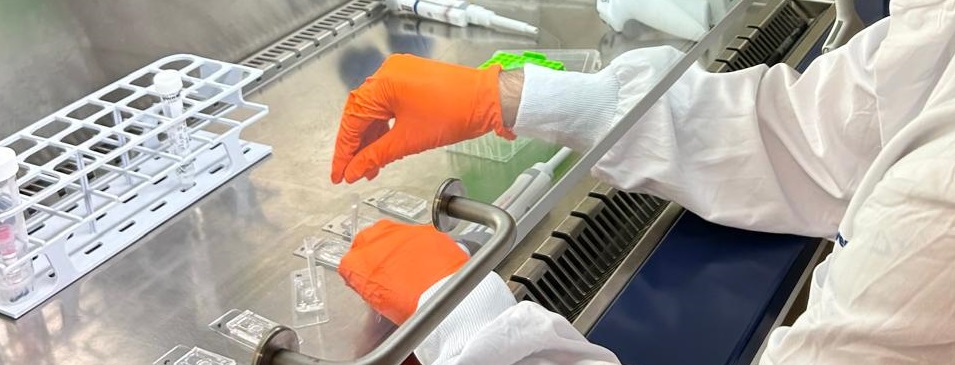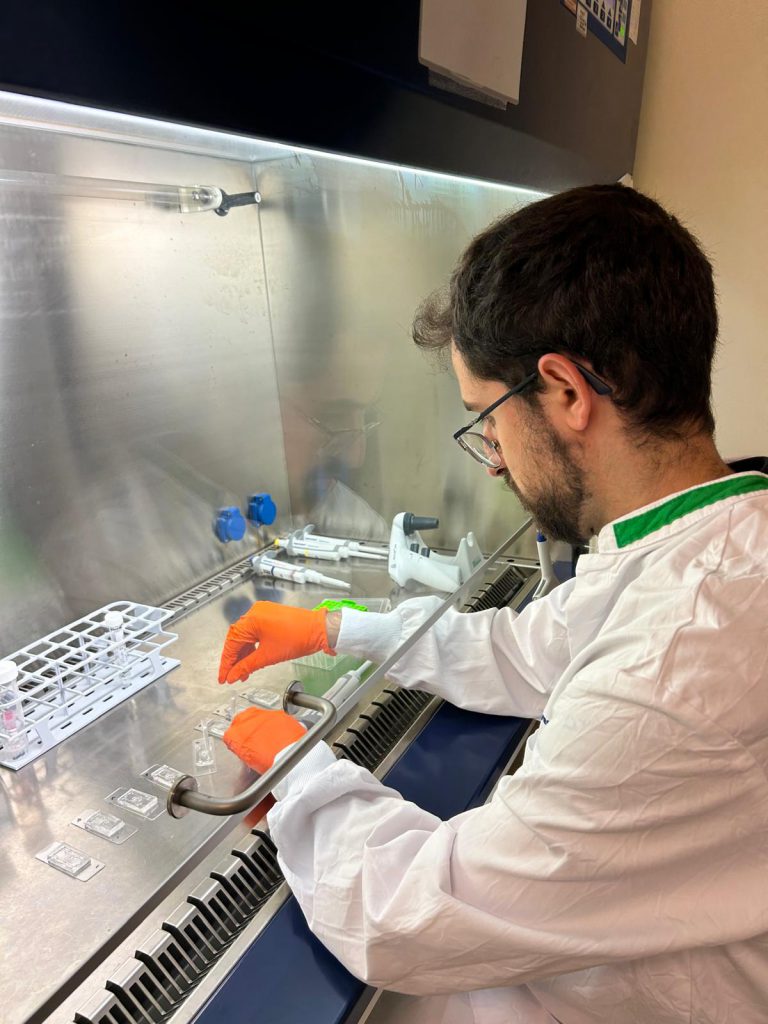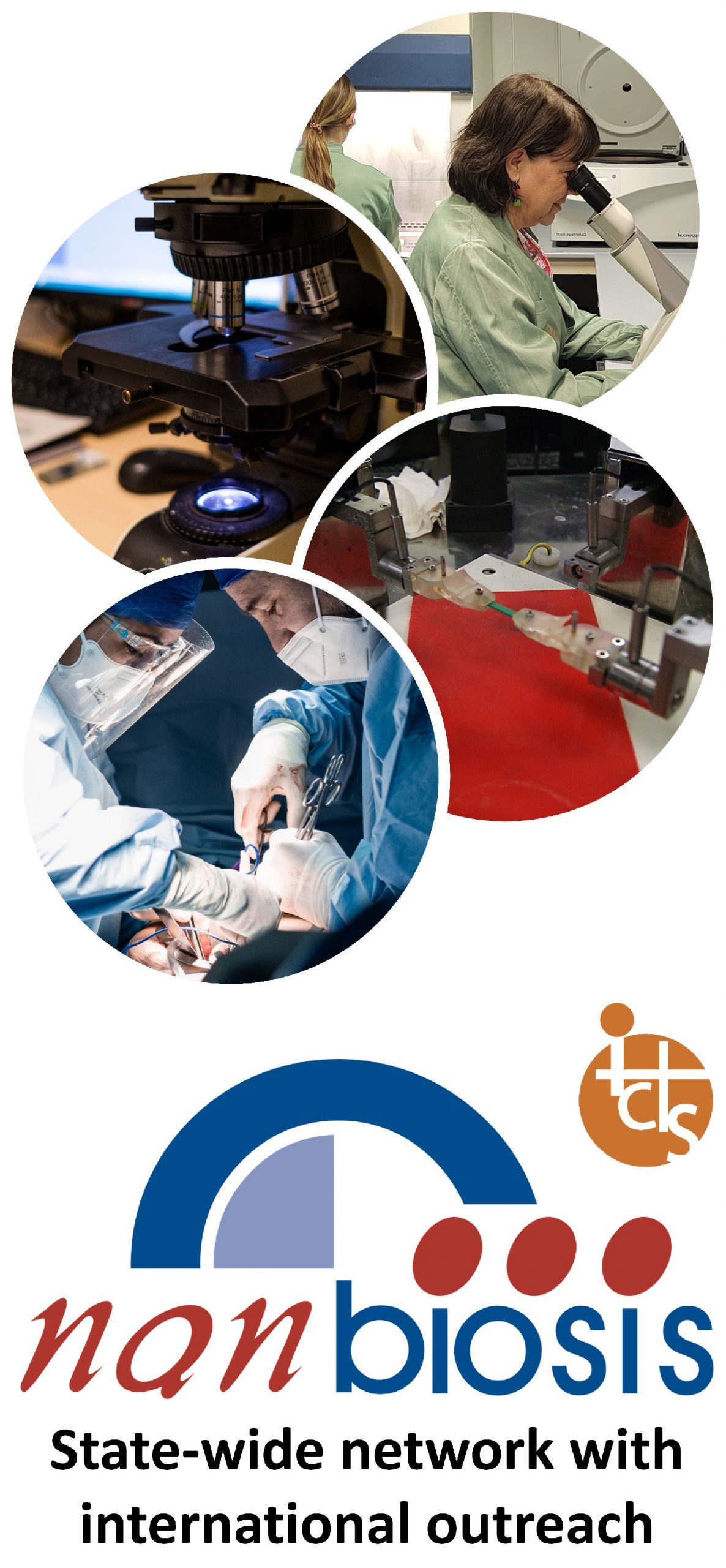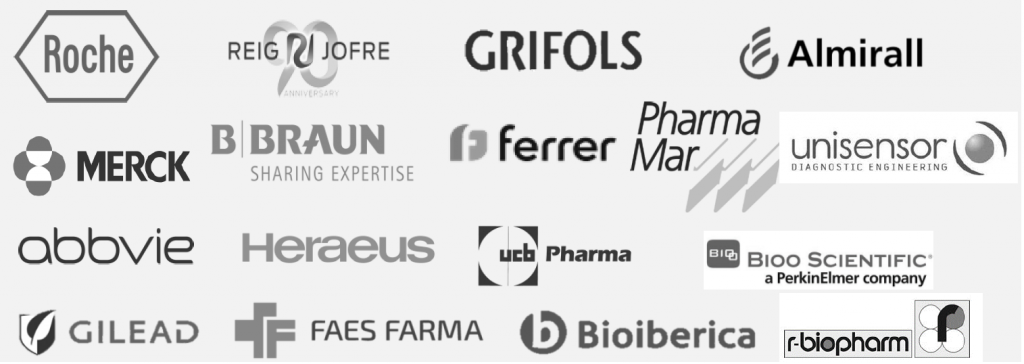
Researchers are advancing gene therapies for cystic fibrosis using non-viral delivery methods, focusing on patient needs and innovative treatments.
Basque Country, September, 2024 – As the world comes together to mark World Cystic Fibrosis Day, from NANBIOSIS we want to highlight the collaborative efforts between our Unit 10 “Drug Formulation” (U10), the University of the Basque Country, and the Cystic Fibrosis Patient Association of the Basque Country (Arnasa) in the fight against this genetic condition. Together, our institutions are advancing the development of gene therapies aimed at treating this life-threatening hereditary disease.
Gene Therapy: A new frontier in treating Cystic Fibrosis
Cystic fibrosis (CF) is a genetic disorder caused by mutations in the CFTR gene, which affects the respiratory and digestive systems. Traditional treatments focus on managing symptoms, but the emergence of gene therapy offers new hope for a more effective, long-term solution. Gene therapy introduces functional copies of the mutated gene or corrects specific mutations, addressing the disease at its genetic root.
Unit 10, located at the NanoBioCel research group and led by Prof. José Luis Pedraz and Dr. Idoia Gallego Garrido from the University of the Basque Country, is leading the development of non-viral gene-editing systems to deliver therapies for CF. These systems are being tested in both 2D and 3D in vitro models of cystic fibrosis, offering a cutting-edge approach to targeting the disease.
In a recent interview, Lucía Enríquez, one of our researchers at Unit 10, explained, “Cystic fibrosis is a disease that often involves lung pathology, though it is not the only one. We work on developing therapies that are non-invasive, often of genetic origin, applying the most cutting-edge and effective techniques possible.”
Innovative delivery platforms: A key to success
While viral vectors have historically been used for gene therapy delivery, they present certain risks and limitations, including immune responses and insertional mutagenesis. This has spurred interest in the development of non-viral vectors, such as niosomes and lipid nanoparticles, which offer a safer alternative for gene delivery.
NanoBioCel’s research explores the potential of niosome formulations, in which non-ionic surfactants replace phospholipids, and other promising technologies like nanodiamonds, known for their biocompatibility and scalability. These non-viral vectors are poised to offer a more secure, efficient method for delivering gene therapies, marking a significant advancement in the treatment of CF.
One of the most exciting areas of research is the development of a non-invasive, inhalation-based gene delivery system. This method targets the lungs directly, making it a promising solution for CF, which primarily affects the respiratory system. However, this route presents unique challenges, as genetic material must overcome both intracellular and extracellular barriers within the lungs. Our research team is currently working on designing an efficient aerosol-based delivery system to overcome these hurdles.

A patient-centered approach: Collaboration with Arnasa
The partnership between NanoBioCel and Arnasa, the Cystic Fibrosis Patient Association of the Basque Country, is central to the success of this project. Arnasa plays a critical role in ensuring that the research is focused on the real-world needs of patients living with CF. By providing insight into the patient experience and highlighting the most pressing challenges, Arnasa helps guide the development of therapies that can significantly improve the quality of life for CF patients.
Arnasa’s commitment to advocacy and patient support has been instrumental in raising awareness about cystic fibrosis and the importance of investing in innovative research, especially during occasions like World Cystic Fibrosis Day.
Looking to the future
Unit 10 and its collaborators remain dedicated to advancing gene therapies and non-invasive treatments for cystic fibrosis. Through the integration of cutting-edge technology and patient-focused research, they aim to not only improve existing treatments but also create new therapeutic avenues that offer greater hope to those affected by this debilitating condition.
On World Cystic Fibrosis Day, we are reminded of the importance of continued research, collaboration, and awareness to drive progress and deliver better outcomes for patients worldwide.
What is NANBIOSIS?
The goal of NANBIOSIS is to provide comprehensive and integrated advanced solutions for companies and research institutions in biomedical applications. All of this is done through a single-entry point, involving the design and production of biomaterials, nanomaterials, and their nanoconjugates. This includes their characterization from physical-chemical, functional, toxicological, and biological perspectives (preclinical validation).
Leading scientists
The main value of NANBIOSIS is our highly qualified and experienced academic scientists, working in public institutions, renowned universities and other research institutes.
Custom solutions
Designed for either scientific collaboration or the private industry, we adapt our services to your needs, filling the gaps and paving the way towards the next breakthrough.

Cutting-Edge facilities
Publicly funded, with the most advanced equipment, offering a wide variety of services from synthesis of nanoparticles and medical devices, including up to preclinical trials.
Standards of quality
Our services have standards of quality required in the pharmaceutical, biotech and medtech sectors, from Good Practices to ISO certifications.
In order to access our Cutting-Edge Biomedical Solutions with priority access, enter our Competitive Call here.
NANBIOSIS has worked with pharmaceutical companies of all sizes in the areas of drug delivery, biomaterials and regenerative medicine. Here are a few of them:









